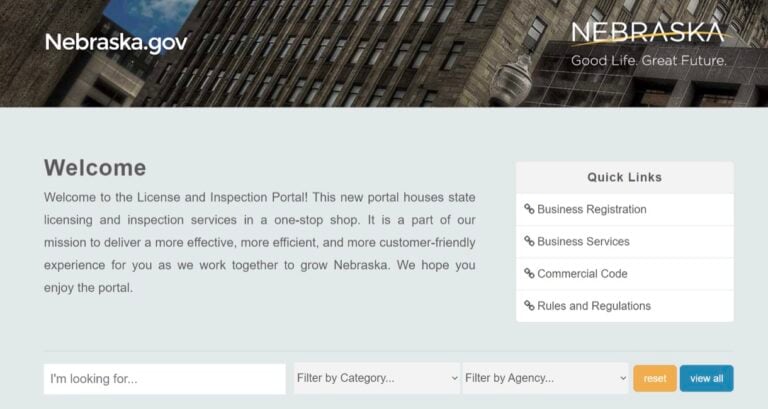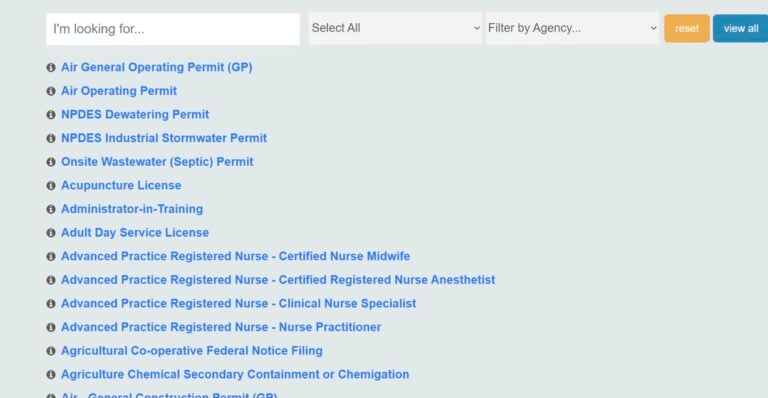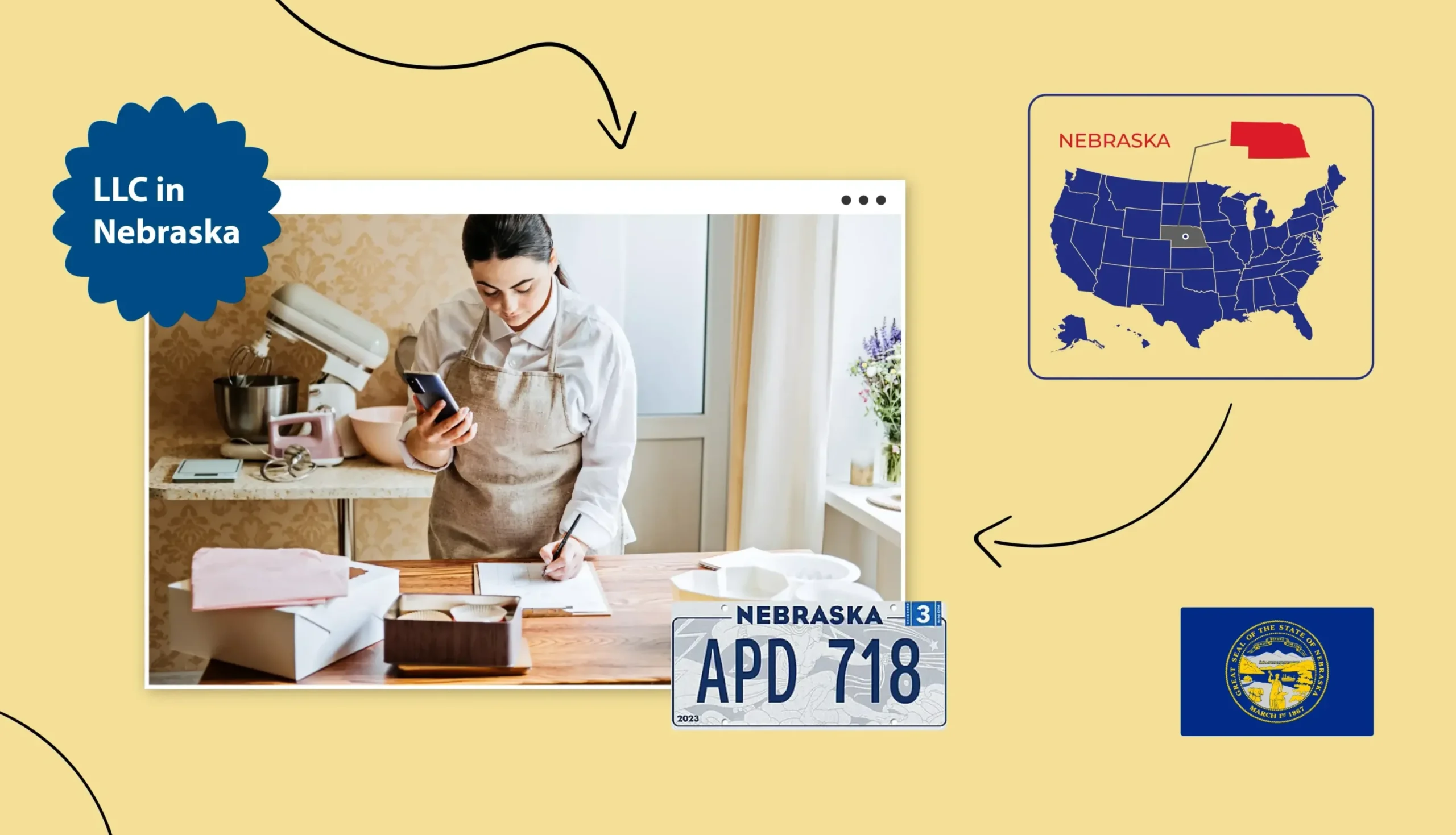If you on starting a business in Nebraska, you’ll find a strong workforce, sound infrastructure, and a positive business climate. But you can’t just throw the doors open and start doing business without the proper authorization. You’ll have to register your business, and you also may have to apply for Nebraska licenses and permits. It’s not always easy to know exactly which licenses and permits you need. This is a guide to determining what your license requirements are and then actually applying for them.
The purpose of business licenses and permits
Licenses and permits exist to ensure that all small businesses abide by Nebraska state and local law, but that’s not the only reason. A number of these credentials are in place to promote public safety. Professional licenses ensure us that qualified people are the only ones providing services that require special training and skill. Permits ensure that activities that could put the public at risk – food preparation is an example – are being done safely.
Business licenses vs permits
The terms “license” and “permit” are sometimes used interchangeably, but they aren’t exactly the same things. Licenses allow companies to conduct specific types of businesses in specified locations. For example, professional licenses ensure that skilled people such as chiropractors, electricians and real estate agents are qualified to do their jobs. To obtain a license, you have to apply, pay a fee, and sometimes pass a test or otherwise prove your qualifications.
Permits are issued to authorize businesses to perform certain activities. Businesses that prepare food generally need permits. Permits often require initial and ongoing inspections.
Types of business licenses and permits you might need for your Nebraska business
Nebraska doesn’t require a general business license. However, depending on what your business does and where you do that business, you might need several licenses and permits from state, local, and federal governments.
State and local business licenses and permits
Several Nebraska state agencies issue licenses and permits that are required for specific types of businesses. Some of these departments are Agriculture, Banking and Finance, Health and Human Services, Liquor Control Commission, and Insurance. There are also professional boards that license businesses such as barbers, accountants, and engineers. You may need a state license or permit if you are a detective, a home inspector, an athletic agent, or if you deal in products as diverse as fireworks, tobacco, or agricultural seeds.
In addition, some cities, towns, and counties have their own requirements. There might be local liquor and fireworks licenses, or there could be permits for food preparation and various construction activities.
Specialty specific federal business licenses and permits
Some business activities are federally regulated, and, if you are involved in one or more of these, you will need licenses or permits from the federal regulatory agencies. These fields include certain aspects of agriculture, alcohol, aviation, firearms and explosives, fish and wildlife, maritime transportation, mining, nuclear power, radio and TV broadcasting, and transportation. Each of these federal agencies that regulates these arenas has its own requirements, fees, and application process.
How to obtain business licenses and permits in Nebraska
Step 1: Determine what licenses and permits your business needs
The Starting a Business in Nebraska | Nebraska Department of Revenue website is a good place to begin your search for the small business licenses and permits you may require. The site has links for programs that require separate license applications. Examples are tobacco, motor fuels, lottery and games, and amusement devices.
Another site, Business Licensing | Nebraska.gov, has links for liquor licenses and for licenses and permits required by the state Department of Agriculture. There are also links to information on permits, licenses, and renewals for food establishments, health and human services, and a number of professions including engineering, architecture, and accounting.
The Nebraska One-Stop Licensing Portal has a licensing tab with a drop-down list for a few specialties, such as collection agencies, debt management companies, and private detectives. What’s more useful, however, is its search facility:

You can look for licensing by category or by agency. You can Select All categories to see a complete list:

You can click the links under categories or agencies for more information about that specific credential or issuing body.
For city, town, and county licenses and permits, you will need to contact the local government to find out what’s required. Some communities, such as Omaha, have websites where you can see this information. For other municipalities, you must call the city or county office.
For federal permits and licenses, the Small Business Administration maintains an Apply for Licenses and Permits page. There’s a link to the appropriate agency for each business activity that requires federal licensing. The individual agencies maintain information on what licenses you may need and how you can apply for them.
Step 2: Submit all required documents and application fees
You can apply for Nebraska licenses and permits at the One-Stop Licensing Portal. If you search for a category and click on it, you will see a page with the URL where you will see more information and sometimes the actual application form.
For some licenses and permits, you can also apply through the links in the Starting a Business in Nebraska and Business Licenses websites.
For each city, town, and county where you plan to operate, you need to apply for local licenses and permits. The process is different for each municipality, and, if there is no local permitting website, you will need to call city, town, or county hall.
For federal licenses and permits, the Apply for Licenses and Permits web page has the links and information you need. Click through to the agency site to submit your application. For example, the Department of Agriculture maintains an Animal and Plant Health Inspection Service (APHIS) eFile page where you can enter your application information.
Step 3: Track the status of your application and await approval
The waiting time for a Nebraska license or permit is variable. It depends on which government entity you applied with and what kind of credential you applied for. In most cases, you will find the expected response time, as well as whether and how you can track the progress of your application, at the same location where you found the application.
Step 4: Renew if needed
Many but not all federal, state, and local licenses and permits require renewal. Annual renewal is typical. In Nebraska, some licenses renew on a specific day of the year rather than on the license anniversary. Many of the renewal applications are found in the same online locations as the initial application.
Conclusion
The State of Nebraska offers a great deal of online information about license and permit requirements and the application process. Similar information for federal permits is centralized at the SBA website. Tracking down the city, town, and county requirements will require reaching out to each entity. While securing all your small business licenses and permits can seem like a lot, all the information is available, and a methodical search will apprise you of everything you need to know. And if you’re also looking into how to form an LLC in Nebraska, you’ll find that many of the same online state resources can help guide you through that process as well. You will be able to start doing business with confidence, knowing that all the regulatory i’s and t’s are dotted and crossed.
